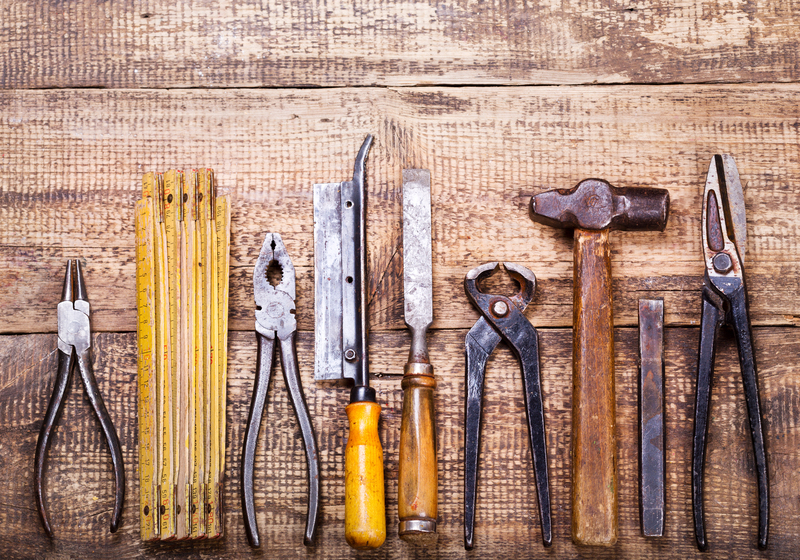Ways to Dispose of Bulky Waste Items While Saving on Costs
Dealing with bulky waste items--from old furniture to broken appliances--can be a challenge for households and businesses alike. Not only do these large, heavy objects demand more effort to remove, but their bulk often comes with hefty fees if you simply leave disposal to regular trash services. In this comprehensive guide, we'll explore cost-effective and environmentally conscious methods to dispose of bulky waste, saving you money and possibly helping others in the process.
Understanding Bulky Waste and Its Challenges
Bulky waste, sometimes known as large item waste or hard rubbish, refers to items that are too big for regular garbage bins or standard trash pickups. Common examples include:
- Old furniture (couches, mattresses, wardrobes)
- Large home appliances (refrigerators, washing machines, ovens)
- Carpets and rugs
- Outdoor items (grills, swings, bicycles)
- Construction materials (doors, bathtubs, windows)
The primary challenges with bulky waste are transportation, disposal fees, and adhering to local regulations. If not handled properly, improper disposal can lead to fines and environmental harm.

Why Save on Bulky Waste Disposal?
Waste disposal costs can add up quickly. Hiring junk removal services or making multiple landfill trips is not only expensive but also time-consuming. Meanwhile, finding alternatives for bulky waste disposal not only saves money but promotes sustainability and community welfare by reducing landfill use and encouraging reuse.
Strategies for Cost-Effective Bulky Waste Disposal
1. Donate Usable Items
Donating is an eco-friendly and cost-saving way to dispose of large waste items. Many charitable organizations will happily accept furniture, appliances, and other large items that are still in usable condition.
- Charity Thrift Stores: Organizations such as Goodwill, Salvation Army, and Habitat for Humanity ReStores often provide free pickup services for large donations.
- Local Shelters and Nonprofits: Some local shelters, community centers, and religious groups need items like beds, tables, or working refrigerators.
Before donating, confirm the organization's criteria--most require items to be clean, functional, and free of infestations. Donating not only saves you on disposal fees but may also qualify you for a tax deduction.
2. Sell or Give Away Online
If your unwanted items are still usable, you may be able to sell bulky waste items or give them away for free through online platforms:
- Online Marketplaces: List items on Craigslist, Facebook Marketplace, OfferUp, or Nextdoor. Note in your listing that the buyer must pick up the item, saving you transportation costs.
- Curb Alerts: In some neighborhoods, it's common to place items at the curb with a "free" sign. Post a "Curb Alert" online, and you may be surprised how quickly large items disappear.
- Specialized Groups: Join local Buy Nothing groups on Facebook, where neighbors share and rehome items for free.
By selling or giving away large waste items, you save on removal costs and reduce landfill waste.
3. Utilize Municipal Bulk Waste Collection Days
Many municipalities offer scheduled bulk waste collection or "big item pickup" services--often for free or at a minimal fee (far less than hiring a private hauler).
- Check Local Guidelines: Visit your city or county website to find out when bulk item pickups are scheduled and which items are accepted.
- Bundling Items: Coordinate with neighbors to schedule pickups together and save on potential fees.
Some municipalities require you to reserve a collection slot, while others have set days each year. Always adhere to guidelines regarding item types, weight, and placement.
4. Take Advantage of Recycling Centers
Recycling centers are a responsible option for disposing of large waste items--and often at lower costs than landfills:
- Electronics Recycling: Many centers accept TVs, computers, and other electronics for free or a small fee.
- Metal Recycling: Scrap yards often pay for metal appliances like stoves, washers, or old bikes.
- Mattress and Carpet Recycling: Some cities have specialized programs that divert mattresses and carpets from landfills.
Check your local government and recycler websites for items accepted, fees, and drop-off requirements. You'll be helping the environment and possibly earning some cash.
5. Repurpose or Upcycle Bulky Items
With a little creativity, you can repurpose large waste objects to save on disposal costs and add value to your home:
- Furniture: Turn old dressers into bathroom vanities or bookshelves into planters.
- Pallets and Wood: Use reclaimed wood from old furniture or pallets for DIY projects like garden beds, benches, or compost bins.
- Appliance Parts: Salvage components from old appliances for new repairs or creative projects.
Look online for upcycling ideas--many resources are available for beginners and experienced DIY enthusiasts alike!
6. Group Disposal With Neighbors or Friends
Pooling resources with others can significantly reduce the cost of bulky item removal:
- Shared Dumpster Rentals: Split the cost of a dumpster or junk hauling service with neighbors if multiple households have items to dispose of.
- Community Clean-Up Days: Organize a neighborhood event to collectively dispose of large, unwanted items.
This approach fosters community spirit and reduces individual expenses.
7. DIY Drop-Off at Landfills or Transfer Stations
If municipal pickup isn't an option, you can personally transport large waste items to a landfill or transfer station. This can save money compared to hiring professionals, especially if you have access to a truck or trailer, but keep in mind:
- Check Fees: Pricing is often based on item types and weight--compare different sites for the best rates.
- Sort Items: Fees may be reduced if items are sorted by type (e.g., metal, furniture, electronics).
- Schedule Trips: Coordinate with friends to combine loads and split costs.
8. Hire a Junk Removal Service (Smartly)
Sometimes professional help is needed for disposal of oversized items. To minimize costs:
- Get Multiple Quotes: Prices vary widely between companies--be sure to compare.
- Choose Curbside Pickups: Some services charge less if items are already on the curb.
- Ask About Discounts: Inquire about seasonal offers, volume pricing, or senior/military discounts.
- Group Items: Dispose of as much as possible in one go to optimize pricing.
While more costly than self-disposal, professional services are fast and convenient for tough jobs.
How to Prepare Bulky Waste for Cost-Efficient Disposal
To further reduce the cost of large waste disposal and avoid complications, follow these best practices:
- Clean Items: Remove personal belongings, hazardous materials, and detachable parts.
- Dismantle When Possible: Take apart furniture, remove refrigerator doors, or cut up large items to make transport easier and reduce costs (some services charge less for easily handled items).
- Label Materials: Clearly label items that require special handling (e.g., containing freon, glass, or electronics).
- Check for Hazardous Waste: Items like old fridges and air conditioners may need certified disposal due to refrigerants.
Tips to Avoid Illegal Dumping (and Fines!)
Improper disposal of bulky waste items is not just unsightly but can result in significant fines and criminal charges in many regions.
- Know the Law: Research your locality's regulations regarding large item disposal.
- Document Disposal: Save receipts and confirmations from recycling centers, haulers, and donation centers.
- Don't Dump on Public Property: Items left on curbs outside of scheduled pickups, in alleys, parks, or vacant lots are usually considered illegal dumping.
If you see illegal dumping, many cities have hotlines or online reporting tools.

Environmental Benefits of Responsible Bulky Waste Disposal
Saving costs on large item disposal isn't just about your wallet--it's about the planet, too. By reusing, recycling, or donating items, you help:
- Reduce landfill waste and pollution
- Conserve resources by keeping usable materials in circulation
- Support communities and people in need
Summing Up: Dispose of Bulky Waste Items While Saving Money
Whether you choose to donate, sell, recycle, or repurpose, there are plenty of ways to dispose of bulky waste items without breaking the bank. With proper planning and a bit of creativity, you can handle even the largest waste items responsibly--and sometimes, you might even get money back instead of shelling it out. Always check local rules, prepare your items properly, and consider the whole lifecycle of what you throw away.
Remember: Smart, environmentally-conscious bulky waste disposal keeps your home clean, supports your community, and saves you money. Start with the methods above the next time you declutter--your wallet and the planet will thank you!